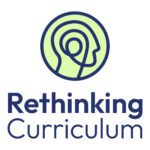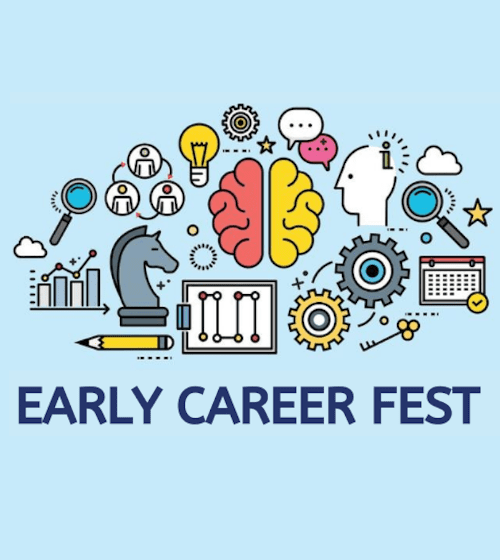Pupil voice and agency: Exploring the evidence-base

This article has been published as part of the Rethinking Curriculum project, kindly funded by The Helen Hamlyn Trust.
DR JULIA FLUTTER, LUCY CAVENDISH COLLEGE, CAMBRIDGE, UK
Introduction
Pupil voice (or student voice) and agency came to the fore in education during the 1990s and have since become important principles shaping educational thinking, policy and practice in the UK and internationally. This review paper explores recent research on voice and agency in primary education to discover how these ideas are influential to teaching and learning in schools. The evidence draws attention to potential benefits, risks and challenges associated with implementing these principles and can be used to support efforts to rethink the primary curriculum.
Defining ‘pupil voice’ and ‘agency’
The term ‘pupil voice’ is often linked to Article 12 of the United Nations Convention on the Rights of the Child (1989):
‘States Parties shall assure to the child who is capable of forming his or her own views the right to express those views freely in all matters affecting the child, the views of the child being given due weight in accordance with the age and maturity of the child.’ (UN, 1989)
British education researcher Jean Rudduck was one of the first proponents of pupil voice, and her work was initially focused on pupil voice as a consultation strategy, regarding pupils as ‘expert witnesses’ on teaching and learning (Rudduck and McIntyre, 2007). Later on, Rudduck and colleagues widened the notion of pupil voice, describing it as a way of giving children and young people more active participation in their education. Pupil voice has now become an umbrella term covering a set of interrelated ideas. Some see pupil voice primarily as a focus for respecting children’s rights in schools (Lundy, 2007), while others consider it as being fundamental to democratic education (Biddulph et al., 2023). In the UK, it has been associated with school improvement initiatives as a means of identifying strategies for improving teaching and learning (Rudduck and McIntyre, 2007). Pupil voice has also shaped pedagogical approaches such as dialogic teachingThe effective use of talk for teaching and learning, involving ongoing talk between teachers and students and oracy (Alexander, 2012). Others have emphasised social and psychological dimensions of pupil voice, developing strategies to improve pupil–teacher relationships and facilitate pupils’ wellbeing (Matthews et al., 2024).
According to researchers Manyukhina and Wyse, the term ‘pupil agency’ is inseparable from pupil voice: ‘Pupil agency has been defined as “giving students voice and choice in how they learn”.’ (Manyukhina and Wyse, 2019, p. 224) However, pupil agency has inward- and outward-looking faces, referring to an individual pupil’s personal identity as well as their capacities for active engagement in their learning:
‘Learner agency refers to the feeling of ownership and sense of control that students have over their learning. Agentive learners are motivated not only to learn but also to take responsibility for managing the learning process… Beyond the classroom, learners can use their agency in positive ways to shape both their personal and their professional lives. As members of local and global communities, they will possess the skills to connect, adapt, and flourish in a dynamic, fast-changing world.’ (Larsen-Freeman et al., 2021, p. 2)
Robin Alexander, Director of the Cambridge Primary Review, suggested that pupil voice and agency are fundamental to effective teaching and learning: ‘The children’s voices approach has a clear role to play in developing more effective teaching and learning because it offers a model of learning premised on active engagement and dialogue.’ (Alexander, 2012, p. 150)
We now turn briefly to explore differing examples of pupil voice and agency approaches in primary schools.
Voice and agency in the classroom
The DIALLS project
The Dialogue and Argumentation for Cultural Literacy Learning in Schools (DIALLS) project was a three-year project involving schools in eight European countries from 2018 to 2021. The project’s aim was to support teachers in developing dialogic practices to promote democratic education, as the UK project team explain:
‘We took the position that children who are able to engage effectively together in the classroom are well prepared to engage in broader “intercultural dialogue” which can be understood as an open and respectful exchange of views between diverse individuals and groups… and centralises the role of democracy.’ (Cook et al., 2023, p. 145)
The team introduced a Cultural Literacy Learning Programme, consisting of 10 sessions for pupils in Key Stages 1, 2 and 3. In this programme, pupils and teachers engaged in supported discussion of social responsibility, living together and belonging, tolerance, empathy and inclusionAn approach where a school aims to ensure that all children are educated together, with support for those who require it to access the full curriculum and contribute to and participate in all aspects of school life. The approach facilitated co-construction of knowledge, as pupils explored each other’s perspectives within a collaborative environment. The project’s evaluation showed that its approach was key to developing democratic behaviours, and demonstrated the power of pupil voice and dialogue as a tool for democracy, enabling pupils to become more tolerant, empathetic and accepting of others’ perspectives.
UNICEF Rights Respecting Schools
Current OfstedThe Office for Standards in Education, Children’s Services and Skills – a non-ministerial department responsible for inspecting and regulating services that care for children and young people, and services providing education and skills guidance requires schools to consult pupils about their experiences as learners and to involve them in decision-making within school at some level. The National Governance Association offers this advice to schools:
‘Using pupil voice (or pupil participation) in school means listening to pupils’ wishes and opinions and involving them in decision-making. Schools that are committed to pupil voice:
- provide time, space and resources for pupil participation
- train and develop staff so they can support pupil participation
- encourage and value the voices of all’ (NGA, 2024, p. 1).
There are a range of ways in which primary schools consult pupils, including school councils, pupil surveys, focus groups and working parties, and one-to-one discussion. As the NGA notes, it is important that these strategies for listening and responding to pupils’ voices is inclusive: ‘Opportunities to participate should be accessible and inclusive for all pupils. This means the methods used consider the age of pupils, communication abilities and needs, and methods do not exclusively favour “articulate”, “confident” or “well behaved” pupils.’ (NGA, 2024, p. 2) They also go on to emphasise the need to ensure that pupils’ views are taken into serious consideration and acted upon whenever possible:
‘Pupil voice activities should have tangible outcomes, and feedback should be shared with pupils. In practice this means:
- engagement has a real impact on pupils’ education, their wellbeing or wider school experience
- pupils know how their views have been used and what action has been taken as a result
- engagement is continuous and intentional’ (NGA, 2024, p. 3).
One example of this dimension of pupil voice and agency is UNICEF’s Rights Respecting Schools programme, which supports pupil participation efforts in over 5,000 UK schools. The programme is based on the United Nations Convention on the Rights of the Child and its aims extend beyond the school to include the community and world at large:
‘There are four key areas of impact for children at a Rights Respecting school; wellbeing, participation, relationships and self-esteem. The difference that a Rights Respecting School makes goes beyond the school gates, making a positive impact on the whole community.
- Children are healthier and happier
- Children feel safe
- Children have better relationships
- Children become active and involved in school life and the wider world’ (UNICEF, 2024).
Schools follow a graded award scheme, with Bronze, Silver and Gold Awards, which guide and structure the programme’s implementation and assessment, embedding children’s rights at the centre of school ethos, teaching and learning, relationships, decision-making and school policies. Evaluation of the programme’s impact has indicated that it has been highly successful in improving children’s lives, through putting children’s rights at the heart of school policy and practice (UNICEF, 2024). A study of RRSA schools carried out by Judy Sebba and Carol Robinson reported that both teachers and pupils felt that the programme had helped to create more positive relationships between staff and young learners, based on mutual respect and collaboration (Sebba and Robinson, 2010).
Benefits, risks and challenges
Extensive evaluation of pupil voice and agency research projects and initiatives indicates that a number of firmly established benefits are associated with adopting these principles. Benefits identified include the following:
- raising levels of pupils’ confidence, autonomy and engagement with learning (Holdsworth, 2020; an invaluable set of free resources based on Roger Holdsworth’s extensive research with Australian primary school can be found at: https://asprinworld.com/connect)
- helping to establish more positive staff–pupil relationships (Sebba and Robinson, 2010)
- contributing to raising standards of achievement (EEF, 2024)
- giving pupils opportunities to think and talk about their learning and progress (Cheminais, 2015)
- generating a respectful and collaborative school ethos (Sebba and Robinson, 2010)
- contributing to pupils’ wellbeing and mental health (Matthews et al., 2024)
- allowing pupils to engage with democratic principles at first hand and developing their understanding of their roles as members of the local and global community (Biddulph et al., 2023).
The OECD report ‘Reimagining education, realising potential’ (2024) highlights evidence on the benefits of introducing strategies that promote pupil voice and agency:
‘When students actively participate in shaping their education by selecting what and how they learn, they can exhibit increased motivation and are more inclined to set specific learning objectives (OECD, 2019[12]). This can not only enhance their enthusiasm for learning but also equip them with the essential ability to self-educate – a skill of lifelong value. This agency is applicable across various domains, including ethical decision-making, social interactions, economic understanding, and creative work. For instance, exercising moral agency is critical for students to make decisions that acknowledge the rights and needs of others.
While a robust sense of agency aids students in achieving long-term objectives and overcoming challenges, it is imperative that they possess fundamental cognitive, social, and emotional skills. These skills are crucial for applying their agency effectively, benefiting both their personal development and society at large.’ (OECD, 2024)
Psychological evidence also highlights the significant benefits of approaches that strengthen agency. For example, psychologist Sara Baker and colleagues have reviewed extensive theory and research on agency and report: ‘Our theoretical review, drawing together developmental psychology and educational practice, shows that making space for children’s agency through playful learning can support serious skills like self-regulation and inner motivation, which are, in turn, associated with positive learning outcomes.’ (Baker et al., 2021)
Similarly, significant evidence has demonstrated the positive impact of dialogic teaching approaches that develop pupils’ oracy and thinking skills, with associated gains in attainment measured in key stage testing. The EEF-funded project Improving Children’s Learning by Improving the Quality of Classroom Talk, based at York University and in association with the Cambridge Primary Review Trust:
‘found consistent, positive effects in English, science and maths for all children in Year 5, equivalent to about 2 months additional progress. The result was similar when looking only at children eligible for free school meals. This is consistent with other EEF trials focusing on cognitively challenging talk, such as Philosophy for Children, and Thinking, Doing, Talking Science. The consistent results across subjects and the lack of any subject specific content in the training suggest that the approach may improve children’s overall thinking and learning skills rather than their knowledge in a given topic.’ (EEF, 2024).
It must also be acknowledged, however, that researchers have noted some risks, obstacles and challenges associated with introducing these principles. Some commonly identified concerns reported in research include:
- a lack of inclusivity in pupil voice approaches, leaving some pupils feeling marginalised and silenced (Arnot et al., 2004; Messiou and Ainscow, 2015)
- failure to take pupils’ views into account or respond to their opinions and perspectives, which can make consultation appear inauthentic and tokenistic (Charteris and Smardon, 2018)
- disquiet among staff that pupils’ views might be antagonistic or undermine teachers’ authority (Skerrit, 2022)
- difficulties in sustaining pupil voice strategies due to pressures on teachers’ time and conflicting priorities (Flutter, 2007; Cheminais, 2015).
The teachers’ trade union, NASUWT, offers helpful guidance on implementing pupil voice strategies and aiming to mitigate some of these concerns. With regard to the importance of ensuring inclusivity in pupil voice approaches, it can be helpful to reflect on the following questions:
- Whose voices are listened to in the acoustics of our school?
- Who is expected to speak, listen and change in our classrooms and school?
- Who do our ‘student voice’ practices and actions benefit? Who misses out?
- What might we have to learn from younger students, quiet students and those who may not be recognised as ‘good’ students?
- How could we be more attentive and attuned to each other – to listen beyond the verbal and written voice?
(based on Mayes et al., 2019)
Implications and recommendations
Recent evidence from research and practice on pupil voice and agency in primary schools affirms their potential benefits and indicates their importance in rethinking the primary curriculum. Voice and agency are integral to establishing a positive culture for teaching and learning, but it is vital to ensure that opportunities to experience and express these principles are not regarded as individualistic or confined to pupils, as Robin Alexander points out: ‘Suggesting that children should have a voice does not negate the importance of teacher voice, and the value of these strategies lies, in part, on the mutual benefits they can bestow on teachers and children alike.’ (2012, p. 154) The implications of voice and agency therefore extend to teachers (Priestley et al., 2015) and pupils, the individual and the community.
The following recommendations are put forward to facilitate pupil voice and agency through the primary curriculum:
- There is a need to include a diverse range of pedagogical and systemic strategies offering opportunities for pupils to express their voices and agency at individual, whole-class, school, community and global levels.
- Strategies may include: authentic opportunities within the curriculum for pupils to experience choice, ownership and agency in their learning; dialogic teaching approaches encouraging pupils to think and talk about their learning and progress; more opportunities for active engagement in collaborative, real-world problem-solving (such as the Design for Change programme); and classroom and school structures to support pupil participation in decision-making (such as school councils and pupil consultation initiatives).
- School leaders, teachers, teaching assistants and those with responsibility for school governance require training and support to enable these principles to become more fully embedded within the curriculum and integral to pedagogy. Structured programmes, in partnership with external agencies, provide valuable opportunities for collaboration and dissemination (such as the Chartered Teacher Programme), enabling effective practices to be shared, evaluated and sustainable.
References
Alexander R (ed) (2012) Children, Their World, Their Education: Final Report and Recommendations of the Cambridge Primary Review. Abingdon: Routledge.
Arnot M, McIntyre D, Peddar D et al. (2004) Consultation in the Classroom: Developing Dialogue About Teaching and Learning. Cambridge: Pearson Publishing.
Baker ST, Le Courtois S and Eberhart J (2021) Making space for children’s agency with playful learning. International Journal of Early Years Education 31(2): 372–384.
Biddulph J, Rolls L and Flutter J (eds) (2023) Unleashing Children’s Voices in New Democratic Primary Education. Abingdon: Routledge
Charteris J and Smardon D (2018) Student voice in learning: Instrumentalism and tokenism or opportunity for altering the status and positioning of students? Pedagogy, Culture & Society 27(2): 305–323.
Cheminais R (2015) Engaging Pupil Voice to Ensure that Every Child Matters: A Practical Guide. London: Routledge.
Cook V, Maine F, Fozzard L et al. (2023) Building cultural literacy through dialogue: Democracy at the heart of learning. In: Biddulph J, Rolls L and Flutter J (eds) Unleashing Children’s Voices in New Democratic Primary Education. Abingdon: Routledge, pp. 145–159.
Education Endowment Foundation (EEF) (2024) Dialogic teaching – trial. Available at: https://educationendowmentfoundation.org.uk/projects-and-evaluation/projects/dialogic-teaching (accessed 23 September 2024).
Flutter J (2007) Teacher development and pupil voice. The Curriculum Journal 18: 343–354.
Holdsworth R (2020) Student voice, agency and participation: Understanding and practices. Professional Voice 13(2): 21–30.
Larsen-Freeman D, Driver P, Gao X et al. (2021) Learner agency: Maximizing learner potential. Available at: https://elt.oup.com/feature/global/expert/learner-agency?srsltid=AfmBOopPApk_60LDcyGEujdgNz0MKYpTtOR1kTVocAouRp4_bS8bT2wq&cc=gb&selLanguage=en (accessed 11 October 2024).
Lundy L (2007) ‘Voice’ is not enough: Conceptualising Article 12 of The United Nations Convention on the Rights of the Child. British Educational Research Journal 33(6): 927–942.
Manyukhina Y and Wyse D (2019) Learner agency and the curriculum: A critical realist perspective. The Curriculum Journal 30(3): 223–243.
Matthews S, Whitehead-Lewis L and Scelsi E (2024) Inspiring and enabling pupil and learner voice. Department for EducationThe ministerial department responsible for children’s services and education in England. Available at: https://teaching.blog.gov.uk/2024/02/05/inspiring-and-enabling-pupil-and-learner-voice (accessed 15 September 2024).
Mayes E, Finneran R and Black R (2019) The challenges of student voice in primary schools: Students ‘having a voice’ and ‘speaking for’ others. Australian Journal of Education 63(2): 157–172.
Messiou K and Ainscow M (2015) Responding to learner diversityThe recognition of individual differences in terms of race, ethnicity, gender, sexual orientation, socio-economic status, physical ability, religious beliefs and other differences: Student views as a catalyst for powerful teacher development? Teaching and Teacher Education 51: 246–255.
National Guidance Association (NGA) (2024) Pupil voice: A guide for governing boards in schools and trusts. Available at: www.nga.org.uk/media/y1lfv4qt/nga-pupil-voice-20231109.pdf (accessed 21 September 2024).
OECD (2024) Reimagining education, realising potential. Available at: www.oecd-ilibrary.org/sites/b44e2c39-en/1/3/1/index.html?itemId=/content/publication/b44e2c39-en&_csp_=bd2d4f221a3136342c2f1843edae9a4f&itemIGO=oecd&itemContentType=book#:~:text=Shifting%20from%20teaching%20to%20mentoring,reflect%20and%20act%20responsibly%20to (accessed 23 September 2024).
Priestley M, Biesta G and Robinson S (2015) Teacher agency: What is it and why does it matter? In: Kneyber R and Evers J (eds) Flip the System: Changing Education from Bottom Up. London: Routledge, pp. 134–148.
Rudduck J and McIntyre D (2007) Improving Learning Through Consulting Pupils. Abingdon: Routledge.
Sebba J and Robinson C (2010) Evaluation of UNICEF’s Rights Respecting Schools Award: Final report. UNICEF. Available at: www.unicef.org.uk/rights-respecting-schools/wp-content/uploads/sites/4/2014/12/RRSA_Evaluation_Report.pdf (accessed 11 October 2024).
Skerritt C (2022) A sinister side of student voice: Surveillance, suspicion, and stigma. Journal of Education Policy 38(6): 926–943.
UNICEF (2024) The RRSA: What is a Rights Respecting School? Available at: www.unicef.org.uk/rights-respecting-schools/the-rrsa/what-is-a-rights-respecting-school (accessed 21 September 2024).
United Nations (UN) (1989) Convention on the Rights of the Child. General Assembly Resolution 44/25. Geneva: United Nations. Available at: www.ohchr.org/en/instruments-mechanisms/instruments/convention-rights-child (accessed 15 September 2024).










